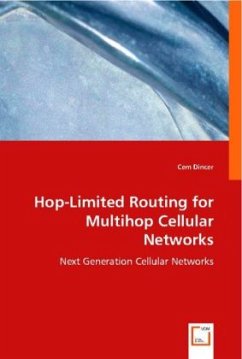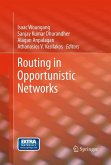In recent years, conventional cellular systems have experienced evolution in fields of data oriented services. During this period, the requirement for high data-rate stimulated new research proposals, which resulted in a new architecture: Multihop Cellular Networks (MCN), where multihop structure enables mobile stations to forward packets from other mobile stations to the base station on the uplink, and in turn, forward packets to other mobile stations from the base station on the downlink. In this thesis, a new routing algorithm is introduced for MCNs in order to limit the number of hops between the base station and the mobile stations with given delay constraints. The capacity of MCNs is restricted due to intensive traffic in the network since all nodes has the capability of sending packets simultaneously. The analysis of average end-to-end delay in high bitrate data transmission reveals that minimizing end-to-end delay with a proper scheduling scheme guarantees the aim of limiting number of hops in MCNs. The proposed algorithm showed that the intensive traffic can be absorbed by the base station by limiting the number of hops between the base station and the mobile stations.








